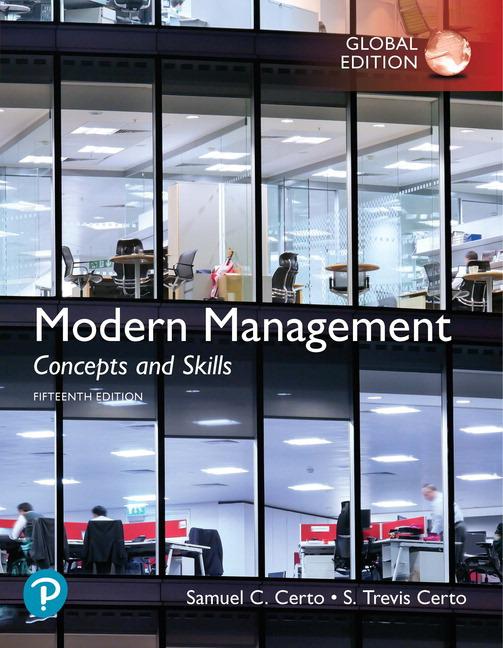Question
TRUE OR FALSE 1. A disclosure is considered material if it reflects the significant economic, environmental, and social impacts of the organization of the stakeholders,
TRUE OR FALSE
1. A disclosure is considered material if it reflects the significant economic, environmental, and social impacts of the organization of the stakeholders, and the capacity of the stakeholders to influence the economic, environmental and social impacts or activities of the organization*
True
False
2. An internal auditor should have no personal or professional involvement with the area being audited.*
True
False
3. NASDAQ listing standards require the audit committee to review major issues regarding accounting principles and the presentation of the financial statements.*
True
False
4. External auditing is an independent, objective assurance and consulting activity designed to add value and improve an organization's operations*
True
False
5. Included in the Environment disclosures are the risks and opportunities due to climate change, procurement practices with respect to local suppliers and anti-corruption*
True
False
6. CFO and the audit committee depend heavily on one another*
True
False
7. Auditors are required by the Security and Exchange Commission to report to the audit committee of the publicly traded company all alternative treatments of financial information within generally accepted accounting principles that have been discussed with management officials.*
True
False
8. Audit committees of listed companies are directly responsible for the appointment, compensation, and oversight of the independent auditor, including the resolution of any disagreements with management.*
True
False
9. Independent Auditor is responsible for preparing the financial statements, establishing and maintaining adequate internal control over financial reporting (ICFR), and evaluating the effectiveness of ICFR.*
True
False
10. Under Sarbanes-Oxley Section 301 public company audit committees are directly responsible for the appointment, compensation and oversight of the work of any registered public accounting firm employed by their company.*
True
False
11. In executing their governance responsibilities, audit committees frequently interact with other stakeholders, in addition to the internal and independent auditors.*
True
False
12. the audit committee is responsible for overseeing the entire financial reporting process.*
True
False
13. The reported information shall reflect positive and negative aspects of the reporting organization's performance to enable a reasoned assessment of overall performance.*
True
False
MCQs
1. Which of the following is not an appropriate member of an audit committee?
a. The organization's vice president of operations.
b. A retired executive of a firm that had been associated with the organization.
c. The vice president of the local bank used by the organization.
d. An academic specializing in business administration.
2. According to best practice the audit committee:
a. Is responsible for designing adequate internal controls.
b. Selects the auditor.
c. Nominates the executive board.
d. Oversees the accounting department.
3. The IIA provides the following checklist of considerations for audit committees in overseeing the internal auditors, except
a. The audit committee reviews and approves the internal audit charter and internal audit plan annually
b. External audit is sufficiently resourced with competent, objective professionals to carry out the external audit plan, which has been reviewed and approved by the audit committee
c. The audit committee engages in an open, transparent relationship with the CAE.
d. Internal audit is quality-oriented and has a quality assurance and improvement program in place.
4. To avoid creating conflict between the chief executive officer (CEO) and the audit committee, the chief audit executive (CAE) should*
a. Request board establishment of policies covering the internal audit activitys (IAAs) relationships with the audit committee.
b. Strengthen independence through organizational status
c. Submit copies of all engagement communications to the CEO and audit committee.
d. Discuss all pending engagement communications to the CEO with the audit committee.
5. The Sarbanes-Oxley Act requires that executive officers attest to all the following except:*
a. All deficiencies in internal control or any fraud has been disclosed to regulators.
b. Their conclusions about effectiveness of internal control.
c. The statements fairly present the company's financial condition.
d. Based on their knowledge there are no untrue statements or omissions of material fact.
6. Which of the following is not a responsibility of audit committees?*
a. Reviewing corporate reporting processes.
b. Relations with the independent auditor.
c. Management compensation.
d. Monitoring management.
7. Internal control objectives are, among others:*
a. Risk assessment
b. Control environment and monitoring.
c. Segregation of duties.
d. Compliance with law and regulations
8. It relates to how company manages the natural resources it needs for its business, as well as how it minimizes its negative impacts to the environment, including biodiversity.*
a. Social disclosures
b. Economic disclosures
c. UN Sustainable development goals
d. Environment disclosures
9. The following are the Internal Benefits of Sustainability Reporting, except;*
a. Motivated workforce
b. Effective management of sustainability risks and opportunities
c. Improved management systems
d. Investor attractiveness
10. _______________ provides a formal structure for designing and evaluating the effectiveness of internal control. It emphasizes the role of the boardand, by delegation or regulation, the role of the audit committeein overseeing internal control.
a. 2013 COSO Framework
b. Sarbanes-Oxley Act
c. Audit Committee
d. SASB
11. Sustainability reporting consists of:
a. Economic issues.
b. Social and environmental issues.
c. Economic, social and environmental issues
d. Environmental issues.
12. Which of the following is an appropriate responsibility of an audit committee?
a. Reviewing the engagement records of the public accounting firm to determine the firm's competence.
b. Performing a review of the procurement function of the organization.
c. Reviewing the internal audit activity's (IAA's) engagement work schedule submitted by the chief audit executive (CAE).
d. Recommending the assignment of specific internal auditing staff members for specific engagements.
Step by Step Solution
There are 3 Steps involved in it
Step: 1

Get Instant Access to Expert-Tailored Solutions
See step-by-step solutions with expert insights and AI powered tools for academic success
Step: 2

Step: 3

Ace Your Homework with AI
Get the answers you need in no time with our AI-driven, step-by-step assistance
Get Started


